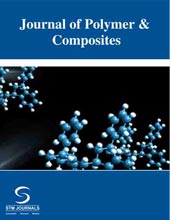Open Access

Amol J. Asalekar,

D.V.A. Rama Sastry,
1·¹ Research Scholar, Department of Mechanical Engineering, Koneru Lakshmaiah Educational Foundation, Green Fields, Vaddeswaram, Guntur, Andhra Pradesh, India
1·² Assistant Professor, School of Mechanical Engineering, MIT Academy of Engineering, Alandi Pune, Maharashtra-, India
2. Associate Professor, Department of Mechanical Engineering, Koneru Lakshmaiah Educational Foundation, Green Fields, Vaddeswaram, Guntur, Andhra Pradesh, India
Abstract
In the present study, a multivariable regression (MR) and artificial neural network (ANN) method was used to predict the thermal conductivity of Jatropha oil-based ZnO-Ag hybrid nanofluid. Firstly, the ZnO-Ag hybrid nanoparticles were synthesized and mixed in the jatropha oil to prepare various nanofluids at different volume concentrations (F) ranging from 0.05 to 0.20%. The stability and thermal conductivity of the prepared nanofluids were investigated. Wide ranges of temperature and volume concentration as input data were used to predict the output parameters as thermal conductivity. In comparison with the multivariable regression, the artificial neural network (ANN) models, predict thermal conductivity values that are remarkably similar to the experimental values by offering a lower mean square error. This approach also aids with the issue of guesswork in figuring out the neural network layer’s hidden structure.
Keywords: ANN, Thermal conductivity, hybrid nanofluid, Jatropha oil
This article belongs to Special Issue Conference International Conference on Innovative Concepts in Mechanical Engineering (ICICME – 2023)
Browse Figures
References
1. S. D. Barewar, S. Tawri, and S. S. Chougule. Experimental investigation of thermal conductivity and its ANN modeling for glycol-based Ag/ZnO hybrid nanofluids with low concentration. J. Therm. Anal. Calorim.(2020); 139(3): 1779–90p.
2. S. D. Barewar, A. Kotwani, S. S. Chougule, et al. Investigating a novel Ag / ZnO based hybrid nanofluid for sustainable machining of inconel 718 under nanofluid based minimum quantity lubrication. J. Manuf. Process (2020); 66:313–24p.
3. S. D. Barewar, S. S. Chougule, J. Jadhav, et al. Synthesis and Characterization of Water Based ZnO and Ag Coated ZnO Nanofluids for Heat Transfer Applications References. J. Therm. Anal. Calorim. (2018); 134: 1493–1504p
4. G. A. Longo, C. Zilio, E. Ceseracciu, et al. Application of Artificial Neural Network (ANN) for the prediction of thermal conductivity of oxide–water nanofluids. Nano Energy (2018); 1(2): 290–96p.
5. H. H. Balla, S. Abdullah, W. M. F. Wan Mahmood, et al. Modelling and measuring the thermal conductivity of multi-metallic Zn/Cu nanofluid. Res. Chem. Intermed. (2013); 39(6): 2801–15p.
6. M. Hemmat Esfe, S. Saedodin, W. M. Yan, et al. Erratum to: Study on thermal conductivity of water-based nanofluids with hybrid suspensions of CNTs/Al2O3 nanoparticles. J. Therm. Anal. Calorim. (2016); 125(1): 565p.
7. M. Hojjat, S. G. Etemad, R. Bagheri, et al. Thermal conductivity of non-Newtonian nanofluids: Experimental data and modeling using neural network. Int. J. Heat Mass Transf.(2011); 54(5):1017–23p.
8. A. Aminian. Predicting the effective thermal conductivity of nanofluids for intensification of heat transfer using artificial neural network. Powder Technol. (2016); 301: 288–309p.
9. B. K. Barnwal and M. P. Sharma. Prospects of biodiesel production from vegetable oils in India. Renew. Sustain. Energy Rev.(2005); vol. 9(4):363–378p.
10. J. Jadhav and S. Biswas. Structural and electrical properties of ZnO:Ag core-shell nanoparticles synthesized by a polymer precursor method. Ceram. Int.(2016); 42(15):16598–610p.

Journal of Polymer and Composites
| Volume | 11 |
| Special Issue | 08 |
| Received | August 18, 2023 |
| Accepted | September 12, 2023 |
| Published | November 14, 2023 |

